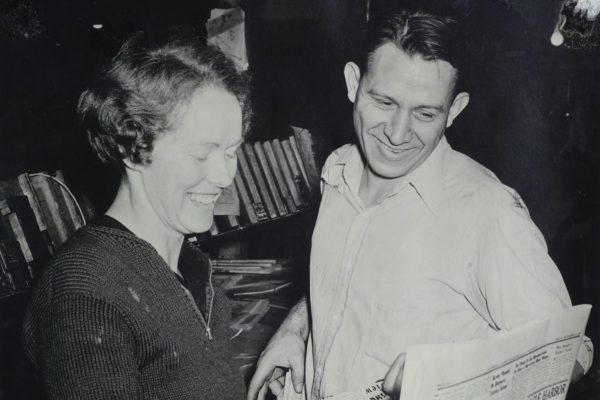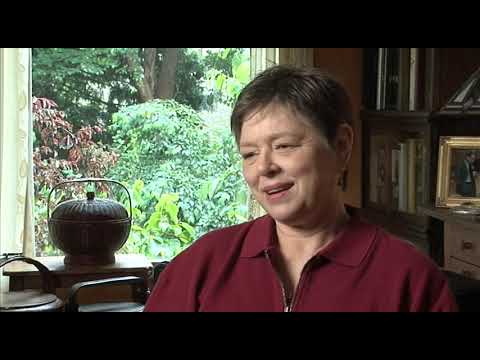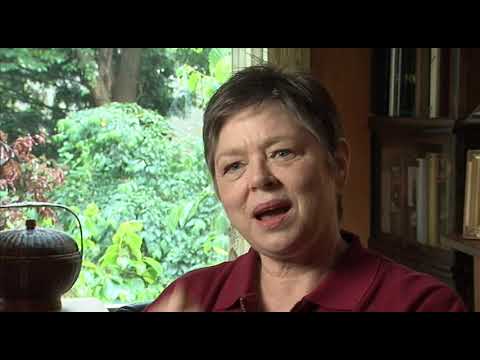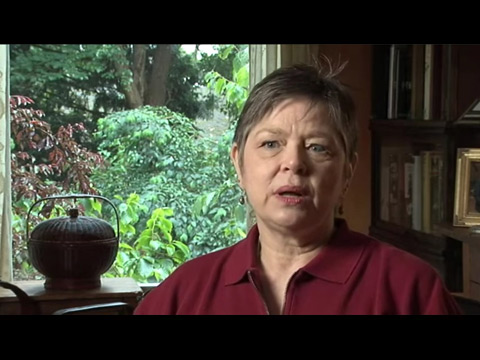Video Interview — August, 2007
Early years at the Review – Mary Woodward (OH0079)
Transcript
It was so different from what it is now, the production of the paper. To get a line of type, they had to sit at this big linotype machine that always scared me, growing up. It was big and there was this melting pig iron, that was melting lead, and it was hot and steamy and dirty. But that’s how you set the type. So they both operated that. They all mocked up the pages and they proofread. Mother did most of the bills I think, kept that end up. Actual printing of the paper was one person stood on a raised platform with this huge drum of a press, and had to hand flip each page which turned out to be four pages, but had to hand flip each one into the… and it would get stuck and they’d have to stop. It was a, it was hard work, keeping the machines going.
One of the things they did from early on was to use the editorial voice of the Review, much more strongly than it ever had been used before. And there still were all these cute gossipy little articles about Small Town America. But they did use their editorial voice in for mostly for community activities. One campaign that my mother had in her column and in the editorials, was to cover the abandoned wells on Bainbridge. She was very concerned that a child would walk over and get trapped in a well. So she mobilized the island. People got around, covered their wells. They did those kinds of things for the community; always supported the library, and that kind of thing.
And that was a change with the Review, to doing that. They also were — and I think this was also a change — rather than just relying on people bringing news to the paper, they went out and covered school board meetings and city meetings, city council meetings if there were those in Winslow at that time. So they were very… it was very important to them that the articles be… the news articles be as objective as they could be and that they spoke their mind in the editorials. Along side that, they established the open forum so that islanders could also express themselves through letters to the editor. They would print any letter that they got. They didn’t… they would find space for any letter as long as it was signed and wasn’t libelous.





